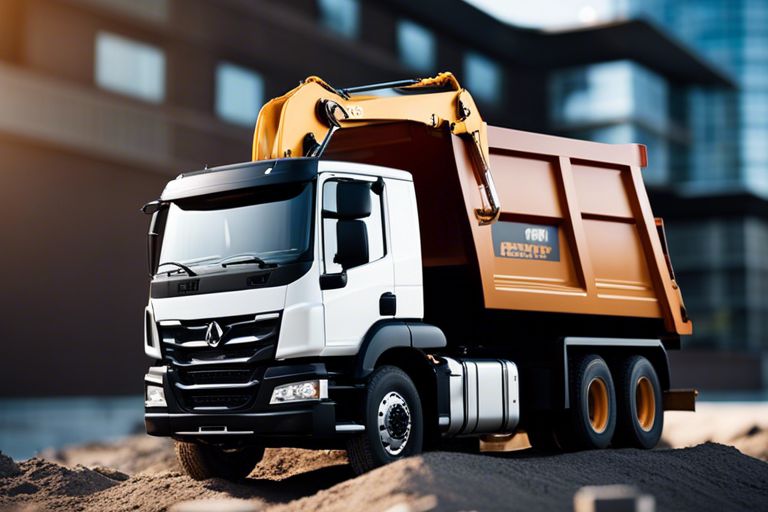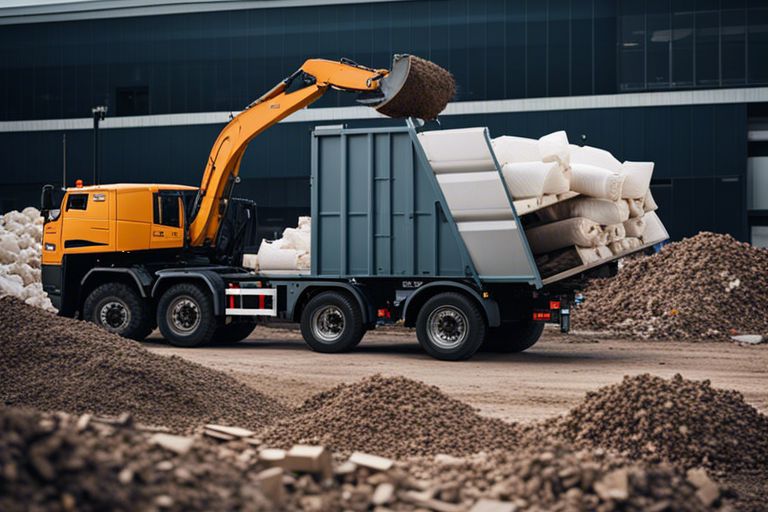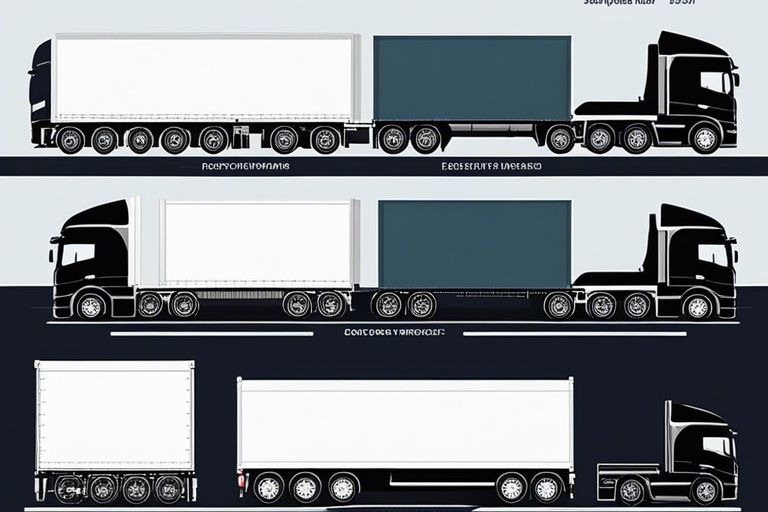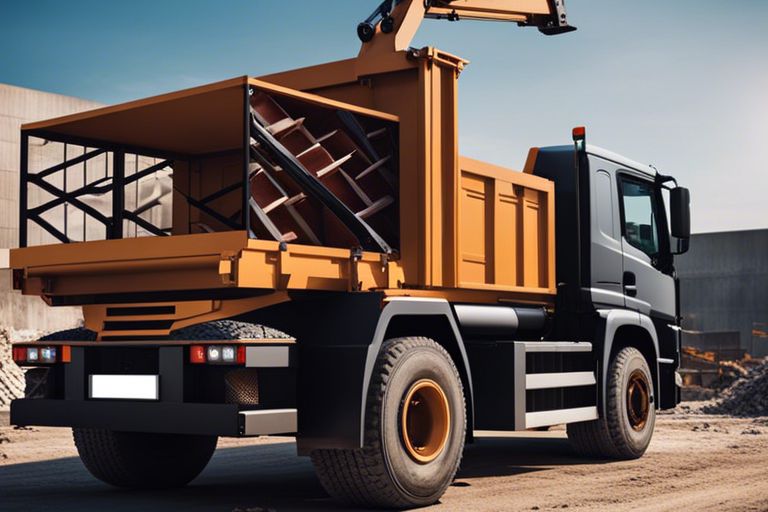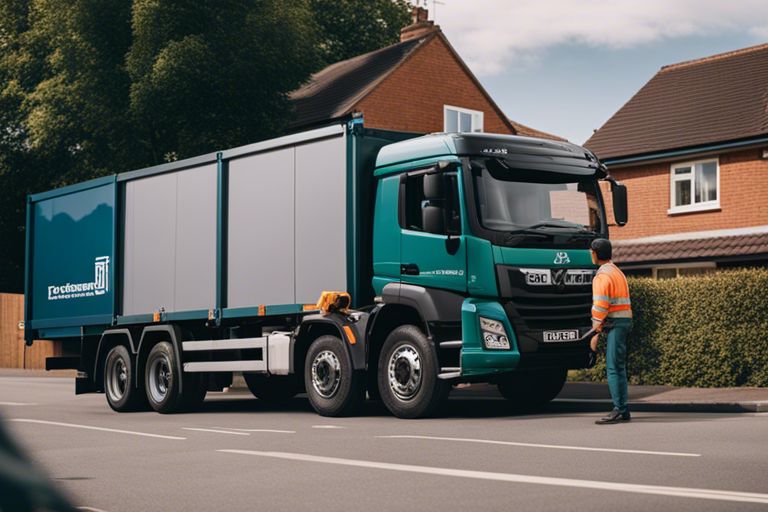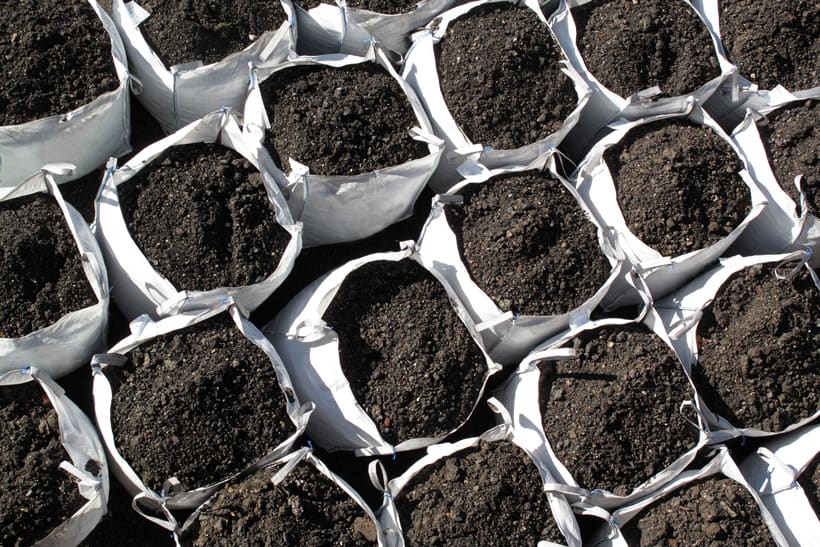Welcome to our comprehensive guide on how to effectively manage medical waste in UK healthcare facilities. Medical waste poses significant health and environmental risks, and it is crucial that facilities follow proper protocols to ensure the safe disposal of this hazardous material. In this blog post, we will provide you with essential information and best practices for handling medical waste, including guidelines set forth by the UK government and relevant regulatory bodies. By following these guidelines, healthcare facilities can protect their staff, patients, and the environment from the potential dangers associated with improper medical waste management. Let’s dive in and learn how to effectively handle medical waste in the UK.
Key Takeaways:
- Proper Segregation: It is crucial for UK medical facilities to properly segregate different types of medical waste to ensure safe disposal and reduce the risk of contamination.
- Regulatory Compliance: UK facilities must adhere to the waste management regulations laid out by the Environment Agency to avoid penalties and ensure environmental responsibility.
- Professional Disposal Services: Engaging professional medical waste disposal services can ensure efficient and safe handling of hazardous waste while mitigating the risk of exposure to harmful pathogens.
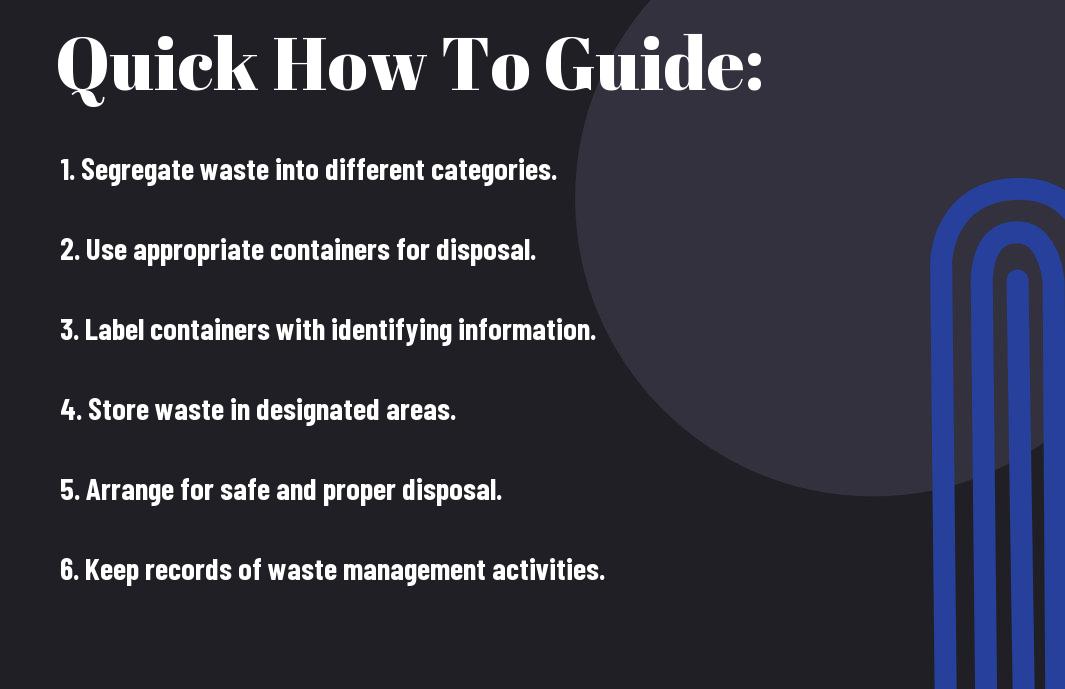
Identifying Different Types of Medical Waste
When it comes to medical waste management, it is essential for UK healthcare facilities to have a clear understanding of the different types of medical waste they may encounter. Proper identification and classification of medical waste are crucial for ensuring safe disposal and preventing health and environmental hazards. Below is a breakdown of the main categories of medical waste commonly found in UK healthcare facilities:
| Type of Medical Waste | Description |
|---|---|
| Infectious Waste | Such as blood-soaked bandages, cultures, and discarded sharps. |
| Hazardous Waste | Including chemicals, pharmaceuticals, and radioactive materials. |
| Pathological Waste | Such as human tissues, organs, and body parts. |
| Sharps Waste | Such as needles, syringes, and lancets. |
| Pharmaceutical Waste | Expired or unused medicines and chemotherapy drugs. |
The proper handling and disposal of medical waste are critical to prevent the spread of infections and protect individuals and the environment from harm. For further information on managing healthcare waste efficiently, refer to our comprehensive guide Managing Healthcare Waste Efficiently: A Guide to Clinical Waste Management.
Classification of Medical Waste
Proper classification of medical waste is essential for safe disposal. Infectious waste, hazardous waste, pathological waste, and pharmaceutical waste must be clearly identified and handled according to regulatory guidelines. This ensures that each type of waste is managed and disposed of appropriately, reducing the risk of infections and environmental harm.
Tips for Segregating Waste in Healthcare Facilities
Segregation of medical waste is crucial for efficient and safe disposal. It is essential to segregate infectious waste, hazardous waste, and other types of medical waste at the point of generation to avoid cross-contamination and potential harm.
- Use colour-coded bins and containers for different types of waste.
- Train staff on proper waste segregation protocols.
- Regularly audit waste segregation practices to ensure compliance.
- Label all waste containers with the appropriate classification.
Perceiving the importance of proper waste segregation is crucial in ensuring the safety of patients, staff, and the environment.
How-To: Safe Collection and Storage Practices
Proper collection and storage of medical waste are crucial for the safety of both healthcare workers and the environment. By following the correct procedures, UK facilities can ensure that potentially hazardous materials are handled in a responsible manner.
Factors Affecting Container Choice
When selecting containers for medical waste, it’s important to consider several factors to ensure safety and compliance. The type of waste being collected, the volume of waste generated, and the potential for sharp objects all play a role in determining the most suitable container. Additionally, the characteristics of the waste, such as infectious or hazardous properties, must be carefully assessed to select the appropriate container.
- Type of waste (e.g. infectious, hazardous, sharps)
- Volume of waste generated
- Characteristics of the waste (e.g. infectious or hazardous properties)
Recognising these factors will allow UK facilities to make informed decisions when choosing the right containers for safe collection and storage of medical waste.
Techniques for Minimizing Risks During Storage
Once medical waste is collected, proper storage is essential to prevent leakage and contaminationaccidental exposure and spillages.
Facilities should also establish clear protocols for regular inspections and maintenance of storage areas to address any issues promptly. Training staff members to handle and store medical waste properly is another crucial aspect of minimising risks during storage.
Understanding these techniques and implementing them effectively are vital for protecting the health and safety of healthcare workers and the community, as well as ensuring compliance with regulatory requirements.
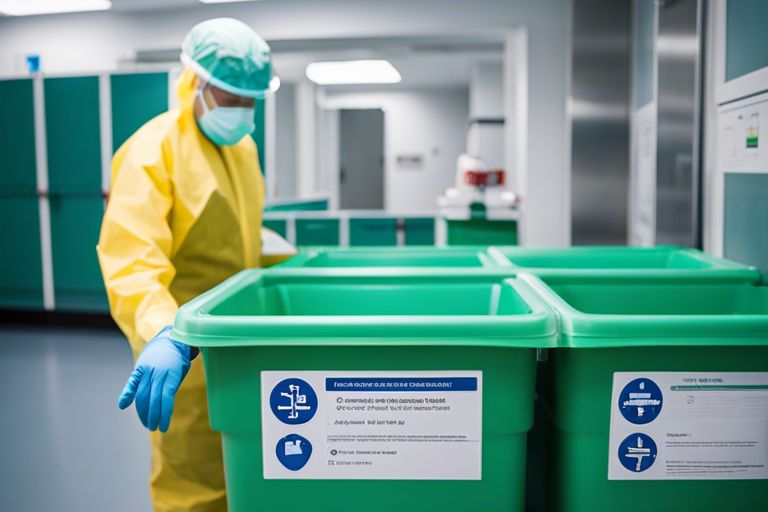
Effective Transportation and Disposal Strategies
Proper transportation and disposal of medical waste is critical for the safety of both the environment and public health. Facilities in the UK must adhere to stringent regulations and guidelines to ensure the safe and compliant management of medical waste. Developing effective transportation and disposal strategies is essential in fulfilling these obligations.
Tips for Selecting a Licensed Medical Waste Carrier
When selecting a licensed medical waste carrier, it is vital to consider several factors. Firstly, ensure that the carrier has the necessary permits and licenses to handle medical waste. Verify their track record and reputation within the industry, and assess their compliance with regulations. Consider the specific waste streams they can handle, as well as their transportation and disposal methods. This will help you identify a carrier that can meet your facility’s unique needs. This careful selection process ensures that you entrust your medical waste to a reputable and compliant carrier, protecting your facility from potential liabilities.
How-To Ensure Compliant Treatment and Disposal
Once medical waste has been transported, its treatment and disposal must also meet strict regulatory standards. Implementing a comprehensive management plan is crucial to ensure that all waste is managed in a compliant and safe manner. This involves segregating waste according to its classification, using appropriate containers, and selecting authorised treatment facilities. Regular assessments and audits can help ensure that the treatment and disposal processes remain compliant and efficient.
Facilities in the UK must follow stringent regulations and employ effective strategies to handle medical waste. By selecting a licensed medical waste carrier and ensuring compliant treatment and disposal, facilities can safeguard public health and the environment from the potential hazards of medical waste.
Training and Education for Staff
Proper training and education for staff members is crucial in ensuring the safe and compliant handling of medical waste. It is essential that all employees, from cleaners to medical personnel, are well-informed about the correct procedures for disposing of different types of medical waste.
For detailed information on how to dispose of waste correctly, refer to the How to dispose of waste correctly blog post.
Developing a Waste Management Training Program
Developing a comprehensive waste management training program is the first step in ensuring that staff members are equipped with the necessary knowledge and skills. The program should cover the identification and categorisation of different types of medical waste, as well as the correct handling and disposal procedures. Regular updates and refresher courses should be provided to keep staff members up-to-date with the latest guidelines and best practices.
How-To Conduct Regular Waste Handling Workshops
Regular waste handling workshops provide an opportunity for staff members to put their knowledge into practice. These workshops should involve practical demonstrations of waste handling procedures, as well as interactive discussions on common challenges and best practices. It is important to involve all relevant staff members, including those directly involved in waste handling and those who generate medical waste in their daily activities.
Regular waste handling workshops are an effective way to reinforce proper procedures and address any issues or concerns that may arise. By regularly conducting these workshops, facilities can ensure that staff members are well-prepared to handle medical waste safely and responsibly, reducing the risk of potential hazards and ensuring compliance with regulations.
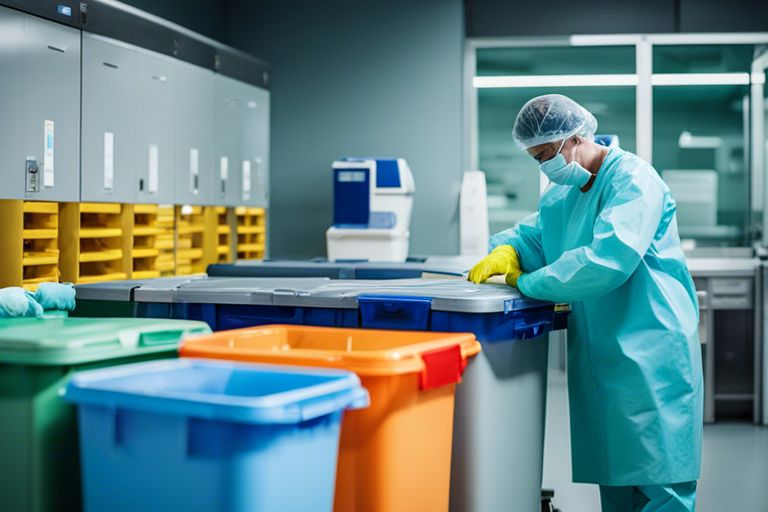 “
“
How to Handle Medical Waste – A Guide for UK Facilities
In conclusion, it is imperative for UK facilities to adhere to strict guidelines when handling medical waste. By following proper procedures for segregation, packaging, labelling, and disposal, facilities can ensure the safety of their staff, patients, and the environment. It is crucial to stay updated on current regulations and best practices to avoid potential fines and legal consequences. Proper training and education for staff members is essential to maintain a high standard of medical waste management. Ultimately, the responsible handling of medical waste is not only a legal requirement, but a moral obligation to protect public health and the environment.
FAQ
Q: What is considered medical waste?
A: Medical waste includes any item that comes into contact with body fluids or potentially infectious materials, such as used needles, bandages, and medical equipment.
Q: How should medical waste be stored?
A: Medical waste should be stored in leak-proof, puncture-resistant containers that are clearly labelled as biohazardous. These containers should be kept in a dedicated storage area away from public access.
Q: What are the regulations for disposing of medical waste in the UK?
A: In the UK, medical waste disposal is regulated by the Department of Health and Social Care. Facilities must follow strict guidelines for segregating, transporting, and treating medical waste to prevent the spread of infections.
Q: What are the best practices for handling and transporting medical waste?
A: All staff involved in handling and transporting medical waste should receive proper training on infection control and handling hazardous materials. Waste should be securely packaged and transported by licensed waste management companies to approved treatment facilities.
Q: How can UK facilities reduce the generation of medical waste?
A: Facilities can implement waste segregation programmes, promote the use of reusable items where possible, and invest in technologies that reduce the volume of medical waste generated, such as on-site treatment systems.

